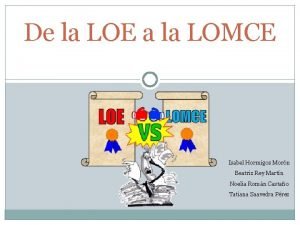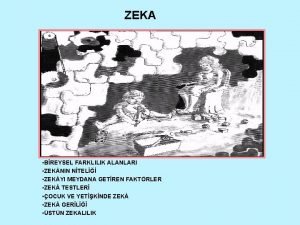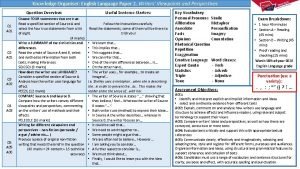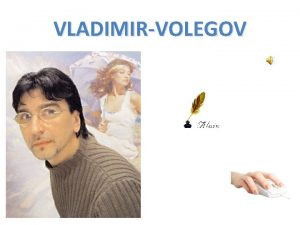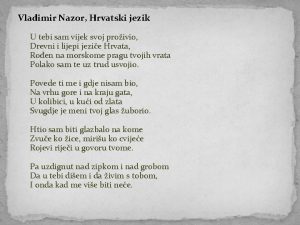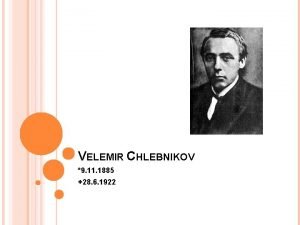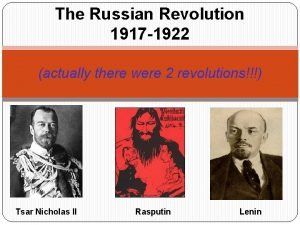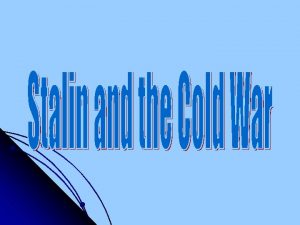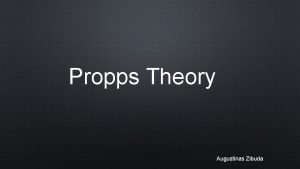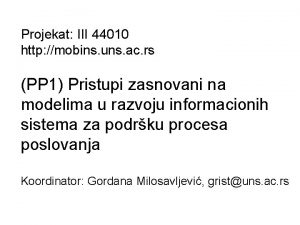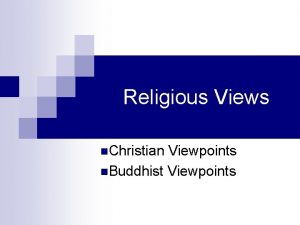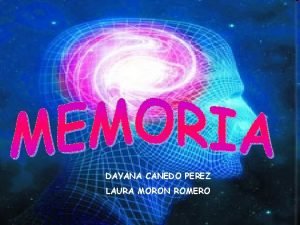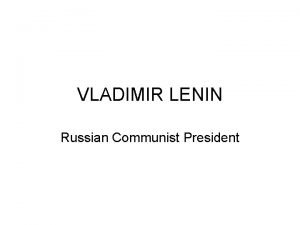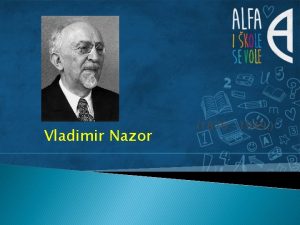Chapter 15 Viewpoints VLADIMIR Moron ESTRAGON Vermin VLADIMIR

















- Slides: 17

Chapter 15 – Viewpoints VLADIMIR: Moron! ESTRAGON: Vermin! VLADIMIR: Abortion! ESTRAGON: Morpion! VLADIMIR: Sewer-rat! ESTRAGON: Curate! VLADIMIR: Cretin! ESTRAGON: (with finality) Crritic! —Samuel Beckett, Waiting for Godot

Chapter Summary • Critics often add fresh dimensions to our awareness and appreciation of theatre. • They acquaint readers and audiences with both good and bad productions. • At best, they hope to connect the truly good work with audiences and to preserve it for future generations.

Criticism • Two kinds of criticism: – Drama criticism: • Comments on written text from literary and culturalhistorical-theoretical perspective – Theatre criticism (theatre reviewing): • Deals with plays-in-performance • Critics are real force: – Critic from New York Times has power to close a show with a bad review.

Audience as Critic • Watching a play raises questions: – Is the world a stage? – Were the actors convincing? – Were costumes appropriate? – Were sound effects too loud? • Audiences are critics (they express opinions). • Audiences bring at least four viewpoints to theatre: – Human significance – Social significance – Artistic qualities – Entertainment value

Audience Viewpoints • Human significance: – Theatre connects audiences with common humanity. – Explores what it means to be human beings. • Social significance: – Theatre has inherent relationship to society: • Audience = community. – Theatre serves as an arena for discussing social and political issues.

Audience Viewpoints • Entertainment: – Great theatre is always entertaining in some way. – Even tragedy delights: • Catharsis • Thrills (ghosts, witches, murders, etc. ) – Theatre is a source of pleasure. • Aesthetic significance: – We know what we like and what we don’t like. – As we see more theatre, we develop a deeper awareness of sights, words, characters, actions, actors, sounds, and colors.

The Professional Critic: The Critic’s Job • Reviews published in morning newspaper following official opening-night performance. • Stanley Kauffmann: critic is “a kind of para-reality to theatre’s reality”: – Criticism should be good, whether it’s about good or bad theatre. • Power and, often, hostility of critics creates backlash: – Checkhov: critics are “horse flies. . . buzzing about anything. ”

The Professional Critic: Services Performed by Critics • Recognize and preserve works of good artists for future generations • Publicists of the good and the bad: – Separate wheat from chaff • Help public decide which productions to see • Serve as mediators between artists and audiences • Serve as historians: – Criticism as record of theatrical times

The Professional Critic: The Critic’s Creativity • Are critics more than failed artists? – Good criticism sometimes written by second-rate artists – George Bernard Shaw expert critic, expert playwright • Criticism a talent: – Combines artistic sensibility, writing skill, insight, knowledge of theatre • Stanley Kauffmann: critic’s creativity is “the imaginative rendering of experience in such a way that it can be essentially experienced by others. ”

The Professional Critic: The Critic’s Questions (c) Patrick Bennett / Courtesy Seattle Repertory Theatre • What is the playwright trying to do? • How well has he or she done it? • Was it worth doing? A Scene from Seven Guitars by August Wilson

The Professional Critic: Performance Notes • Several journals publish critical descriptions of distinguished productions. • Provide records of productions. • Offer impressions of trends in avant-garde theatre.

The Professional Critic: Theatre Scholarship • Majority of critics are university teachers and/or professional dramaturgs. • They analyze plays and productions within rigorously researched critical contexts. • Scholarly critics ordinarily write with a comprehensive knowledge of a specific subject: – Playwright – Performance theories and practice – Historical period – Intercultural and/or gender studies

The Professional Critic: Theatre Scholarship • Works of great writers of dramatic criticism can be of lasting literary value: – Aristotle’s Poetics – Harold Bloom’s Shakespeare: The Invention of the Human • New critical methodologies draw from variety of disciplines: – Linguistics – Semiotics – Structuralism – Deconstructionism

The Professional Critic: Critical Standards • Developed after years of viewing theatre. • Best critics remain open and flexible. • Critic and director Harold Clurman: – Whether the critic is good or bad doesn’t depend on his opinions but on the reasons he can offer for those opinions.

Working Critics • Brooks Atkinson on Tennessee William’s A Streetcar Named Desire: – Wrote two reviews: • After opening night • Ten days later – Both reviews: • Streetcar didn’t address social issues. • Solved no problems. • Arrived at no moral conclusions. • It was a work of art—audience sat “in presence of truth. ”

Working Critics • Brooks Atkinson on Tennessee William’s A Streetcar Named Desire: – Organization of second review: • Deals first with play’s truthfulness • Williams’ “poetic language” • Kazan’s directing and Mielziner’s scenic details • Performances of the actors • Williams’ career

Core Concepts • For the professional critic, the play in performance is the end product of theatre’s creative process. • At best, the critic enhances our understanding of the production or theatre event by enabling us to read about theatrical experience from a perspective other than our own or that of our friends. • Theatre criticism—carefully weighed by the reader— adds a new dimension to the discovery and understanding of theatre.
 Iag moron
Iag moron Embesil idiot moron
Embesil idiot moron Isabel hormigos moron
Isabel hormigos moron Embesil idiot moron
Embesil idiot moron Language paper 2 writers' viewpoints and perspectives
Language paper 2 writers' viewpoints and perspectives Paper 2 writers’ viewpoints and perspectives
Paper 2 writers’ viewpoints and perspectives Vladimir volegov
Vladimir volegov Vladimir nazor voda
Vladimir nazor voda Kviz upravni i neupravni govor
Kviz upravni i neupravni govor Vladimir chlebnikov
Vladimir chlebnikov Uloga nadzornog odbora
Uloga nadzornog odbora Russia after ww1
Russia after ww1 Lenin death cause
Lenin death cause Sunrise by the ocean vladimir kush
Sunrise by the ocean vladimir kush Vladimir perekrestov
Vladimir perekrestov Vladimir propp theory
Vladimir propp theory Vladimir ivancevic ftn
Vladimir ivancevic ftn Vladimir viies tud
Vladimir viies tud


